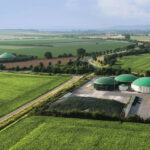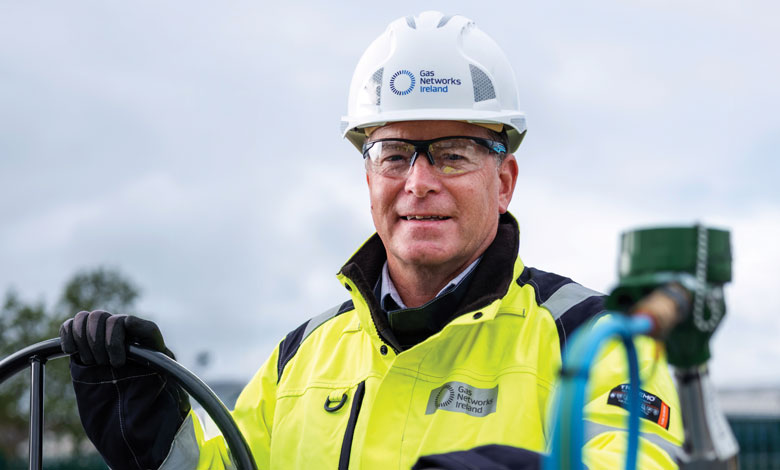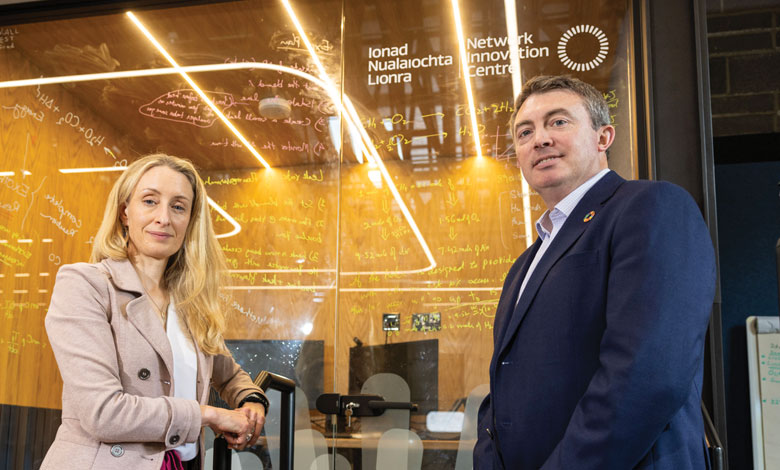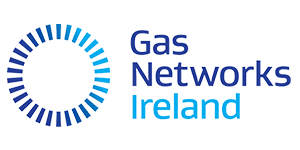
Unlocking European biogas and biomethane
14th October 2025
Secure, clean, and affordable energy for Europe
14th October 2025Powering Ireland’s energy transition with renewable gases

Gas Networks Ireland’s Head of Asset Delivery Conor Ahern, whose team is delivering a fast-growing €200 million capital investment programme focussing on maintaining and decarbonising Ireland’s gas network.
Ireland’s energy system is undergoing a profound transformation as the State works towards its climate commitments of cutting emissions by 51 per cent by 2030 and reaching net zero by 2050. While wind energy and solar power are central to this transition, they are variable by nature as the wind does not always blow, and the sun does not always shine.
That is why Ireland depends on the reliability and flexibility of the gas network to ensure energy is always available when it is needed most. Today, gas supplies 30 per cent of the country’s primary energy demand and up to 90 per cent of electricity generation during periods of low renewable availability. By working to transport renewable gases like biomethane and hydrogen, which will replace natural gas, Gas Networks Ireland is helping to ensure that the same system which underpins security of energy supply will also deliver a sustainable net zero future.
Gas Networks Ireland has set out a Pathway to a Net Zero Carbon Gas Network by 2045. By harnessing renewable gases, advancing innovation and building strong partnerships, the gas network will remain a cornerstone as we transition to a carbon neutral economy. Legislative measures such as the Renewable Heat Obligation (RHO), alongside close collaboration between government, industry and communities, will ensure Ireland develops a secure, sustainable and resilient energy infrastructure.
Investment in infrastructure
Delivering this transformation requires significant investment. Gas Networks Ireland is undertaking a fast growing capital investment programme, with spending set to exceed €200 million in 2025. This programme focuses on maintaining, expanding and decarbonising the gas network.
Gas Networks Ireland’s investment is targeted at upgrading and expanding the network, including making it renewables ready, connecting new customers, including flexible gas-powered peaking plants, as well as reinforcement and refurbishment programmes.
This ongoing investment means Ireland can continue to rely on the gas network to stabilise the energy system while building out renewable capacity.

Interim CEO at Research Ireland, Celine Fitzgerald with Gas Networks Ireland’s Chief Operations Officer Bobby Gleeson, at the launch of the Research Ireland-Gas Networks Ireland €2.7 million Innovation Challenge. This initiative will support pioneering research in renewable gas, energy system integration and artificial intelligence, helping to develop practical, scalable solutions for decarbonising the national gas network.
Peaking power plants
Gas-fired peaking power plants operate when electricity demand is especially high, typically during short, intense periods on cold days with low wind and low sun, known as ‘Dunkelflaute’ conditions.
These ‘peakers’, which are connected to the gas network, are supporting the overall move toward the country achieving its net zero vision, as they can be quickly scaled up or down depending on the availability of renewable sources at any given time. This means they are only being used when renewable power is insufficient to meet consumption.
Prior to 2024, Ireland had not connected a new gas-fired power plant in over 10 years and now, Gas Networks Ireland is contracted to connect 12 speakers to the national gas grid in coming years.
Supporting large energy users
Decarbonising high-heat industries and hard-to-abate sectors is one of the biggest challenges on the road to net zero. In 2024, Gas Networks Ireland established a dedicated Customer Solutions team to work strategically with large gas users in high heat industries from pharmaceutical and dairy processors to manufacturing facilities.
The team provides deep insights into customer operations, identifying opportunities to replace fossil fuels with biomethane in the near term and green hydrogen in the longer term. They also help businesses navigate complex regulatory and reporting requirements as they integrate renewable gas into their decarbonisation plans, including compliance with the EU Emissions Trading System and greenhouse gas monitoring.
Building momentum in 2025
In July 2025, Gas Networks Ireland signed a Memorandum of Understanding with Cycle0, a leading developer of biogas plants, to support the connection of new biomethane facilities to the network. This agreement will help deliver the Government’s target of producing 5.7 TWh of indigenous biomethane annually by 2030; equivalent to powering half a million homes.
A separate MoU with National Gas in the UK provides for closer regional cooperation on renewable gases, enabling both countries to share expertise and pursue joint projects on biomethane, hydrogen and blended gases. These partnerships will ensure secure supplies across interconnected markets.
Innovation is also being accelerated through the €2.7 million Research Ireland-Gas Networks Ireland Innovation Challenge, which is fast tracking transformative technologies in renewable gas, energy integration and artificial intelligence.
Renewable heat obligation
July 2025 also saw a landmark policy development with the Government’s approval of the Renewable Heat Obligation (RHO). This legislation requires energy suppliers for heating to incorporate renewable energy, with a strong emphasis on indigenously produced biomethane.
Set to come into force in 2026, the RHO is expected to transform Ireland’s heating sector, which currently accounts for 37 per cent of energy-related emissions. Starting with a 1.5 per cent obligation rate in year one, rising to 3 per cent in year two, the scheme will significantly increase the renewable share in heating; currently just 7.9 per cent, the lowest in the EU.
Looking ahead
Gas Networks Ireland is aiming to deliver a repurposed, resized and fully decarbonised gas network by 2045. Its Pathway to a Net Zero Carbon Network envisions transforming the existing gas network into two separate systems carrying 100 per cent renewable gas, one dedicated to biomethane and the other to green hydrogen, with the potential to carry approximately 30 per cent biomethane and 70 per cent green hydrogen, as well as offering significant long-term energy export opportunities.
While wind and solar will continue to expand and provide the bulk of renewable electricity, Ireland will always need reliable backup to keep the lights on. The flexible, resilient and increasingly renewable gas network provides that security, making it a cornerstone of Ireland’s sustainable energy future.

